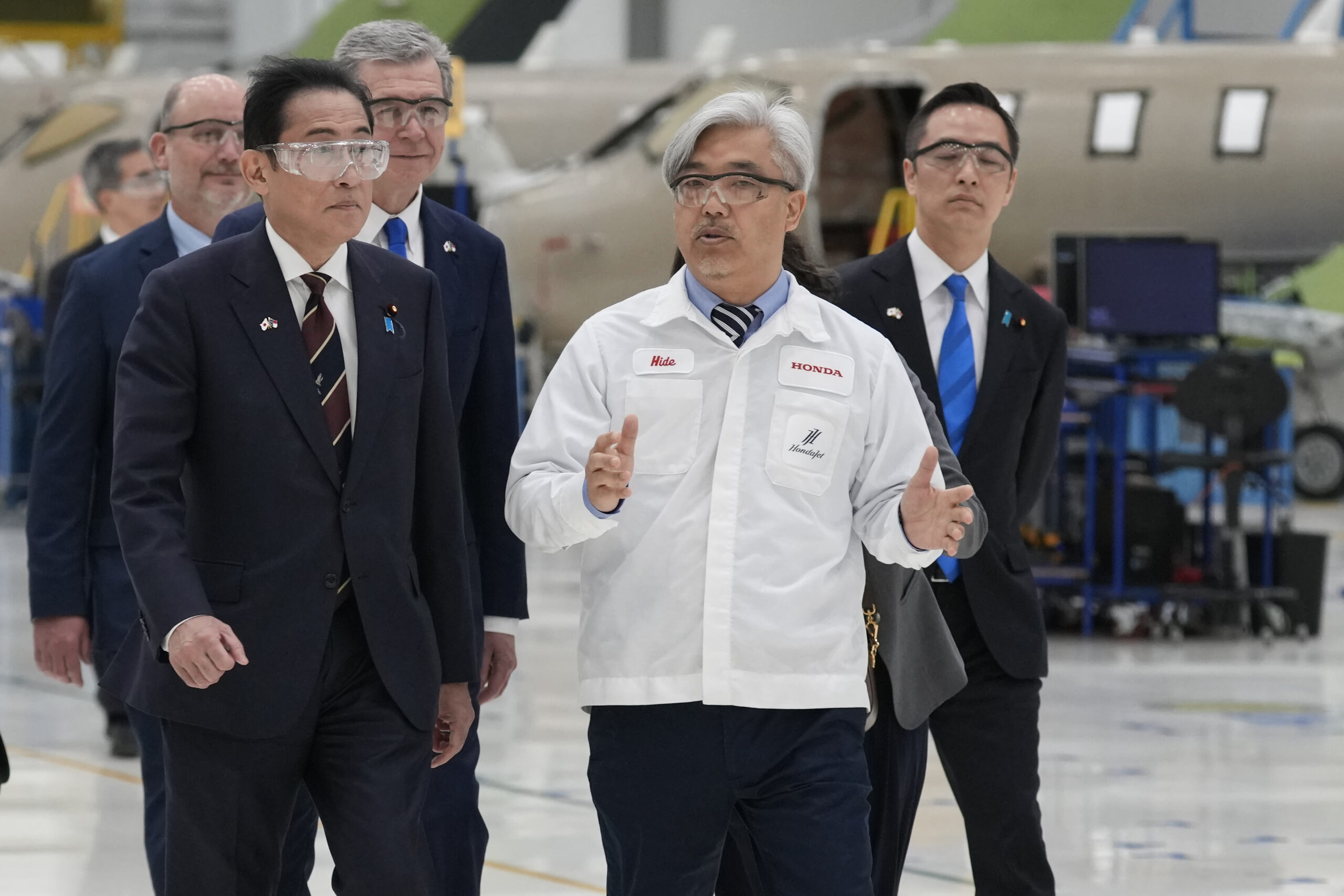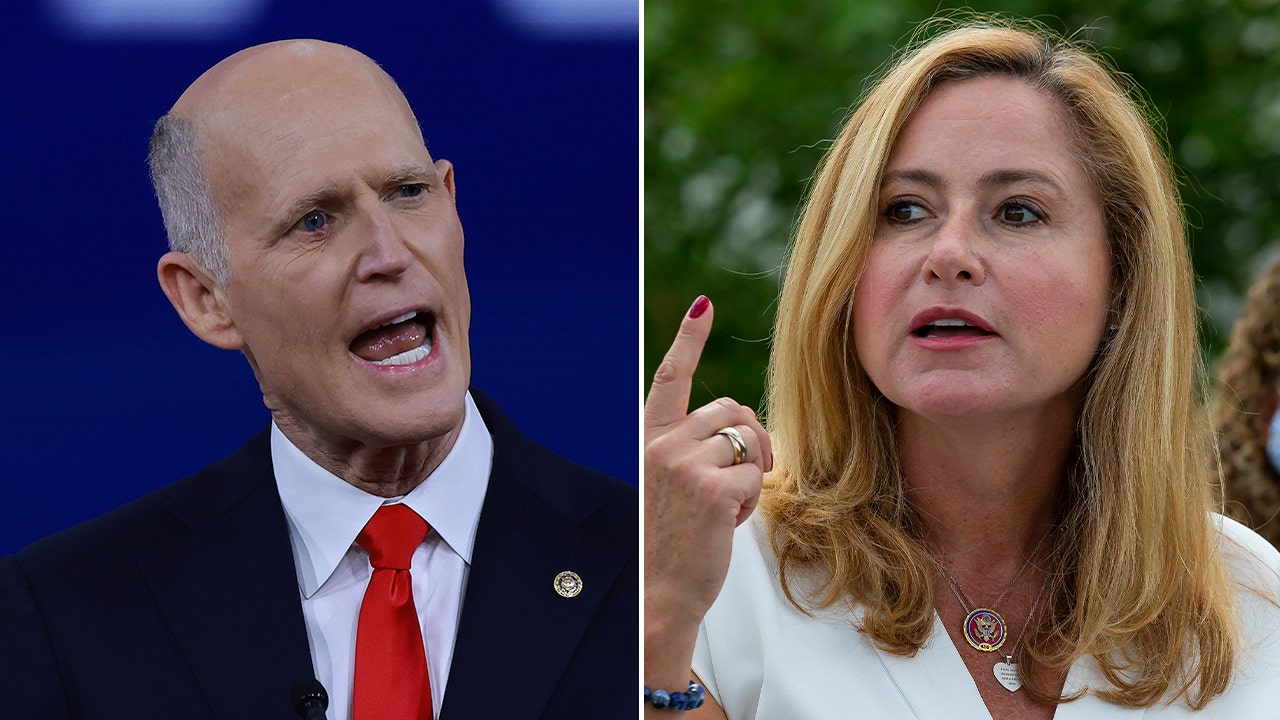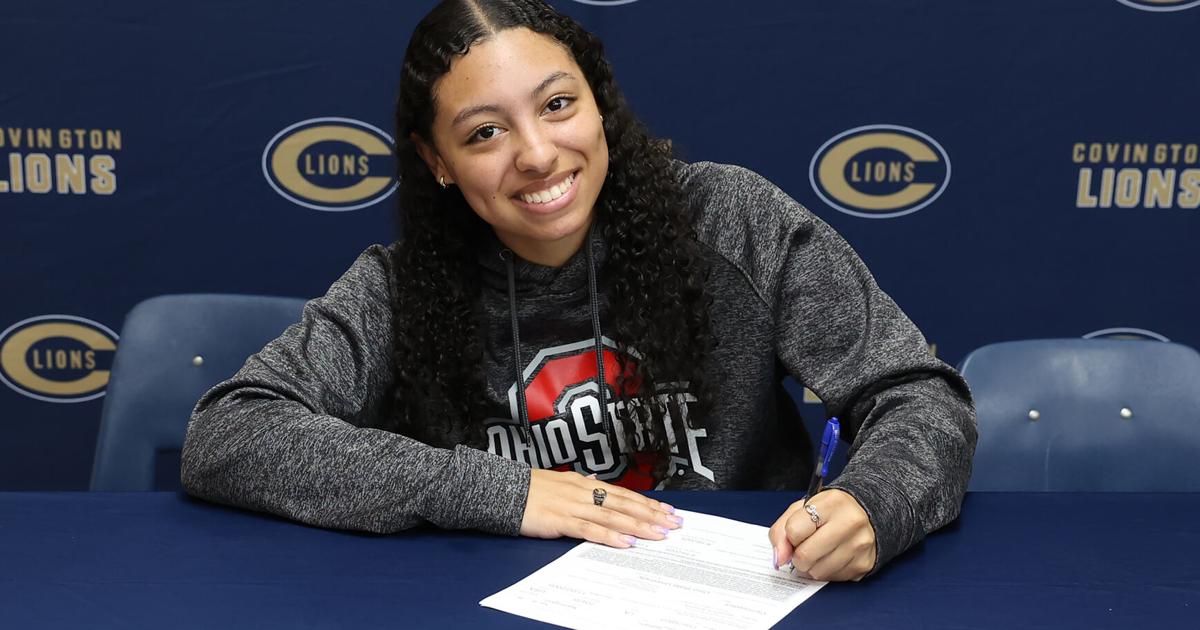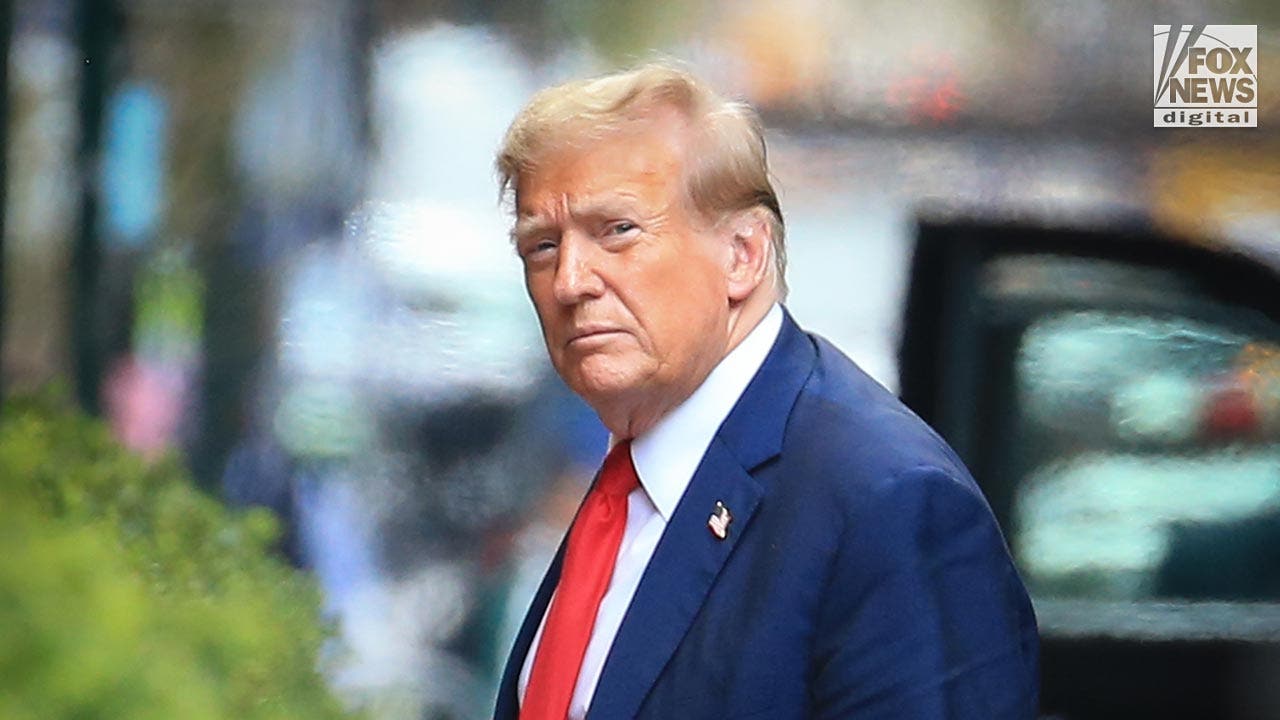North Carolina
North Carolina Welcomes a Historic Visitor in Japan’s Prime Minister Kishida – Chapelboro.com

Written by MAKIYA SEMINERA
Japanese Prime Minister Fumio Kishida cemented economic links and cultural amity with North Carolina on Friday, following up time in Washington during his official U.S. visit by checking up on benchmark Japanese companies building in the ninth-most populous state and later planning to speak with students.
In between, Kishida lunched at the governor’s mansion in Raleigh, a historic first for the head of a foreign country in the Tar Heel state. Japan is North Carolina’s largest source of foreign direct investment, where over 200 Japanese companies have now set up shop, employing over 30,000 people, according to Democratic Gov. Roy Cooper and his office.
“I am honored to be here in North Carolina to showcase the multilayered and strong ties between Japan and the United States,” Kishida said through a translator, inside the mansion ballroom, where about 60 people dined from a menu created by award-winning North Carolina chef Ashley Christensen.
Until now, Kishida’s trip to the U.S. had been focused on global safety. He met President Joe Biden to discuss security concerns about China’s military, participated in the first trilateral summit between the U.S., Japan and the Philippines, and made the case in an address to a joint session of Congress for the U.S. to remain involved in global security.
But Kishida, who has been Japan’s prime minister since 2021, said before his trip that he chose to stop in North Carolina to show that the Japan-U.S. partnership extends beyond Washington, according to a translation posted on his website.
Kishida, Cooper and others traveled to the Greensboro area for Friday morning visits to a Honda Aircraft Co. production facility, as well as to the construction site for a Toyota Motor Corp. electric and hybrid battery plant that’s expected to ultimately employ more than 5,000 people.
Japanese Prime Minister Fumio Kishida, left, and North Carolina Gov. Roy Cooper, back left, tour the assembly building during a visit to the Honda Aircraft facility in Greensboro, N.C., Friday, April 12, 2024. (AP Photo/Chuck Burton)
Hours before Kishida and his wife arrived Thursday night at Raleigh-Durham International Airport, a subsidiary of another Japanese company, Fujifilm, announced an additional $1.2 billion investment in its upcoming biopharmaceutical manufacturing plant and another 680 jobs.
Chiaki Takagi, a Japanese studies lecturer at the University of North Carolina Greensboro, said this week that the prime minister’s visit surprised her but that it could signal a “positive future partnership” between Japan and the U.S. and more Japanese workers coming to the state.
“This whole thing will provide the area with opportunities to be engaged in very active cultural exchange between Japan and the U.S.,” Takagi said.
The luncheon marked the first time a foreign head of state has visited the governor’s mansion since record-keeping began in 1891, the state Department of Natural and Cultural Resources said.
“What a better way to start than with one of our closest allies and friends from the country of Japan, with whom we share so many common interests,” Cooper said at the luncheon. “So today we make history, welcoming our wonderful friends.”
Kishida, Cooper and others were scheduled to go later Friday to North Carolina State University in Raleigh, where they will meet students ranging from those in middle school to adults studying Japanese. They will visit the university’s Japan Center, which was established by former Gov. Jim Hunt and others in 1980 following a state trade mission to Tokyo. North Carolina State also has long, formal ties with Japan’s Nagoya University.
Earlier Friday, Kishida’s wife, Yuko, and North Carolina First Lady Kristin Cooper, shared a traditional Japanese tea at Sarah P. Duke Gardens in Durham.
Related Stories

North Carolina
10 things to know about tourism along North Carolina’s coast
Whether you’re looking for sandy beaches or cool mountain streams, North Carolina’s got it. That’s why the state has become a popular destination for those in the eastern United States.
Each year, Visit North Carolina, the unit of the Economic Development Partnership of North Carolina focused on travel and tourism, examines the data to determine just how much visitors contribute to the state and local economies. While the county breakdowns from 2023 won’t be released until later this year, here’s a look at data from 2022.
Summer bucket list: 24 things to do in 2024 in the Wilmington area
6th
The state’s rank among U.S. states for domestic visitation.
7th
New Hanover County’s rank in visitor spending among North Carolina’s 100 counties.
11.2 million
The number of visitors who traveled to the state’s coastal region.
80%
The number of those visitors who stayed overnight.
Summer
The most popular time for travelers to visit the coast.
2.9
Average party size for coastal visitors.
40%
The percentage of travel parties that included children under 18.
$1,341
The average expenditure for parties traveling to the coastal region in 2022.
Where did visitors travel from?
The top states of origin for overnight visitors to the coastal region in 2022 were: North Carolina, Virginia, Pennsylvania, South Carolina, Maryland, New York, New Jersey and Georgia.
45%
The percentage of coastal region visitors in 2022 who were in-state residents.
Data Source: 2022 North Carolina Regional Visitor Profile, a publication of Visit North Carolina, a unit of the Economic Development Partnership of North Carolina. Research staff of Visit North Carolina created this report based on data from TravelTrakAmerica.
North Carolina
5 years after federal suit, North Carolina voter ID trial set to begin

RALEIGH, N.C. — A federal lawsuit challenging North Carolina’s photo voter identification law is set to go to trial Monday, with arguments expected to focus on whether the requirement unlawfully discriminates against Black and Hispanic citizens or serves legitimate state interests to boost public confidence in elections.
The non-jury trial in Winston-Salem begins more than five years after the state NAACP and several local chapters sued over the voter ID law enacted by the Republican-dominated General Assembly in late 2018.
This litigation, along with similar lawsuits in state courts, delayed implementation of the requirement until last year’s municipal elections. The 1.8 million voters who cast ballots in the March primaries also had to comply. State election data showed fewer than 500 provisional ballots cast because of ID-related issues in the primary ultimately didn’t count.
The November general election — with races for president, governor and other statewide seats — could see turnout three times greater than the primary. And the nation’s ninth-largest state is a presidential battleground where statewide races are often close.
A favorable NAACP ruling from U.S. District Judge Loretta Biggs could block the requirement in the fall. The trial is expected to last several days, with Biggs already signaling in a document that she won’t immediately rule from the bench.
The NAACP lawyers contend the voter ID requirement, along with two other voting-related provisions in the 2018 law, violate the U.S. Constitution and the Voting Rights Act in part because lawmakers enacted them with discriminatory intent.
In a pretrial brief, attorneys for the state and local chapters of the civil rights group cite data showing Black and Latino voters are more than twice as likely to lack a qualifying ID with a photo than white voters. They plan to bring in witnesses who will say they encountered voting problems in the March primary.
Brandon Rivers works to sign up voters at The Roof Above, Aug. 4, 2023, in Charlotte, N.C. A federal lawsuit challenging North Carolina’s photo voter identification law goes to trial Monday, May 6, 2024, with expected arguments focusing on whether the requirement unlawfully discriminates against Black and Hispanic citizens or serves legitimate state interests to boost public confidence in elections. Credit: AP/Chris Carlson
“Absent relief, thousands of North Carolinians will similarly have their right to vote unconstitutionally abridged,” the NAACP lawyers wrote. They also said evidence will show North Carolina lawmakers rushed through the legislation — mere weeks after voters approved a constitutional amendment mandating photo ID — without considering its impact on minority voters.
Attorneys representing Republican legislative leaders and State Board of Elections members defending the law in court said in briefs that the rules impose only a minimal burden on voters.
They point out that the law greatly expanded the number of qualifying IDs compared with what was approved in a 2013 voter ID law that federal judges struck down as discriminatory. Free IDs are provided by county election and Division of Motor Vehicles offices, and people lacking photo ID at the polls should have their votes count if they fill out an exception form or bring in their ID to election officials before the final tallies.
“The General Assembly enacted (the law) after the People of North Carolina mandated the legislature to create a voter ID law. The bipartisan legislation did not have a discriminatory intent, and Plaintiffs cannot overcome the presumption of legislative good faith,” lawyers for House Speaker Tim Moore and Senate leader Phil Berger wrote in a brief. Preventing voter fraud is also a legitimate state interest for the law, the attorneys wrote. Nationwide, however, voter identity fraud is rare.
Biggs, who was nominated to court by President Barack Obama, already has ruled frequently in this case.
In late 2019 she issued a preliminary injunction blocking enforcement of the law, saying it was tainted because the 2013 law had been struck down on similar grounds of racial bias. But the 4th U.S. Circuit Court of Appeals reversed her decision, writing that she had put too much emphasis on the past conduct of the General Assembly when evaluating the 2018 law. When Biggs declined to allow Berger and Moore to join the lawsuit as defendants, they appealed, and the U.S. Supreme Court ultimately sided with them in 2022.
Biggs opened the door for a trial when the state Supreme Court determined the photo ID law comported with the state constitution.
Thirty-six states have laws requesting or requiring identification at the polls, 21 of which seek photo ID, according to the National Conference of State Legislatures.
North Carolina
UNC Basketball: Rutgers transfer Cliff Omoruyi commits to Alabama over North Carolina

Portal season, besides the commitment of Cade Tyson and return of RJ Davis, has been an underwhelming one for Hubert Davis and the Tar Heels thus far. News didn’t get any better on Sunday afternoon as top target Cliff Omoruyi chose Alabama over North Carolina and others.
The 6-foot-11 Rutgers big man was one of multiple centers that the Tar Heel staff recently pushed for to fill the departure of Armando Bacot, but Coach Davis has had zero luck and will still be searching heading into mid-May for a replacement center. After a near silent recruitment, Omoruyi was in Chapel Hill for a visit earlier this week, but it ended up not being enough to get him in Carolina blue.
This miss is extremely concerning for North Carolina, as the transfer portal window has closed and Omoruyi was presumed as the last elite center in this years cycle. For reference, Omoruyi was ranked 12th in On3’s transfer portal rankings, and the next uncommitted center is ranked 210th. As Hubert Davis has shown us in the past, it is all about fit and system more so than ranking, but there have been one too many swings and misses to be content with where the Tar Heels currently are.
Jalen Washington, Zayden High, and James Brown are the front court right now for North Carolina. Although Washington and High have shown flashes, that is a very inexperienced position group that is typically the centerpiece of Tar Heel teams. There’s reason to believe Jalen Washington will have a significantly increased role in 2024-25, but with three remaining scholarships, bringing in someone with a different skillset makes tons of sense for Hubert and his staff.
As all of the portal noise begins to die down, all eyes will be on North Carolina and how they close out what has been a poor performance to date. Talent is still on the market, but needs have to be addressed before the Tar Heels just try to fill out a roster with the best available.
-

 Politics1 week ago
Politics1 week agoColumbia University’s policy-making senate votes for resolution calling to investigate school’s leadership
-

 News1 week ago
News1 week agoBoth sides prepare as Florida's six-week abortion ban is set to take effect Wednesday
-

 World1 week ago
World1 week agoBrussels, my love? MEPs check out of Strasbourg after 5 eventful years
-

 News1 week ago
News1 week agoPro-Palestinian campus protesters face looming deadlines and risk of arrest
-

 Politics1 week ago
Politics1 week agoHouse Republicans brace for spring legislative sprint with one less GOP vote
-

 Politics1 week ago
Politics1 week agoRepublican makes major announcement in push to grow GOP support from once-solid Dem voting bloc
-

 Politics1 week ago
Politics1 week agoGOP Rep. Bill Posey won't seek re-election, endorses former Florida Senate President as replacement
-

 World1 week ago
World1 week agoAt least four dead in US after dozens of tornadoes rip through Oklahoma

















